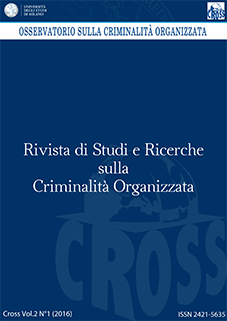The 1992 antimafia mobilisation
DOI:
https://doi.org/10.13130/cross-6972Abstract
This article analyses the 1992 anti-mafia mobilisation by attempting to explore at what extent the murderers of Falcone and Borsellino represent collective traumas that foster a "historical discontinuity" in the relationship between part of society and political representatives but also in civil commitment. The article highlights the elements that jeopardize the relationship between the part of civil society and the political representatives who, in the torpid climate of the Mani Pulite (Clean Hands)operation, lose moral legitimacy. It, then, analyses the new forms of civil mobilization developed after the Capaci and via d'Amelio’s slaughters, initiatives that renew the city commitment and the collective action repertoire so far used by anti-mafia activists. Finally, it underlines the legitimacy transfer mechanisms that allow the judiciary to embody the model of public ethics through the figures of Falcone and Borsellino.Downloads
Download data is not yet available.
Downloads
Published
2016-04-01
How to Cite
Moge, C. (2016). The 1992 antimafia mobilisation. Rivista Di Studi E Ricerche Sulla Criminalità Organizzata, 2(1), 32–60. https://doi.org/10.13130/cross-6972
Issue
Section
La ricerca






